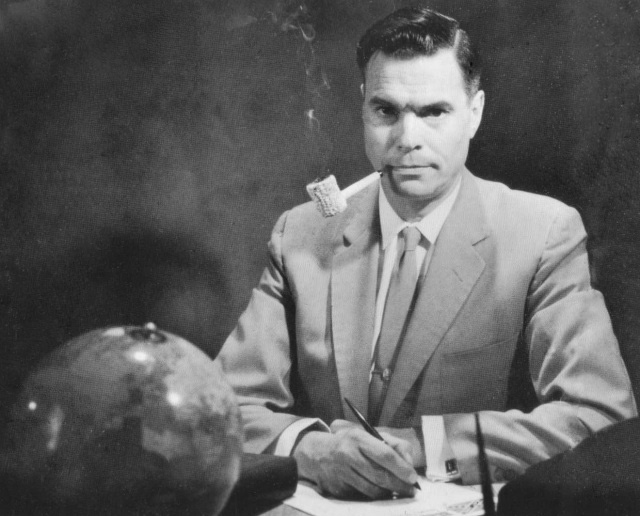
Although it was 44 years ago, I still remember the moment that I first heard the news of the assassination of George Lincoln Rockwell as though it were yesterday.
I was reading the newspaper while my sister watched television in the other room. Around 12:25 p.m., they interrupted the show she was watching with the announcement, that "George Lincoln Rockwell, commander of the American Nazi Party, has been shot near his headquarters in Arlington, Virginia. His medical condition is unknown." A few minutes later, they interrupted the show a second time to announce that Rockwell had died.
The news took all of the wind out of me -- it was as though I had been punched in the solar plexus.
Coverage of Rockwell's murder, and of the abortive attempt to bury him in Culpeper National Cemetery, filled the front pages of the newspapers for the next week. It was the lead story on the nightly television news reports, and led the top-of-the-hour news summaries on the radio. The same media that mocked him and called him "insignificant" and a "failure" in life, treated his assassination as though a head of state had died. All of the publicity and coverage which they denied him while he was alive they showered upon him once they thought that he was no longer a threat.
Lincoln Rockwell was shot down in the parking lot of the Dominion Hills Shopping Centre. He was about to do some laundry at the Econo-Wash Laundry. The last person to speak with Commander Rockwell was a local woman named Ruby Pierce. She was interviewed that evening by a reporter from a local TV news program, who unsuccessfully tried to lure her into denouncing Rockwell:
RUBY PIERCE: He put his clothes in each tub, those two tubs, and then he got his detergent and he started the machine and said, "Oh, I forgot something." I don't know whether he said he forgot the detergent or what. He said, "I forgot something." And then he went out. And I took my clothes over and put them in the dryer. And it didn't cross -- never for one moment did I know this is Rockwell. And then the assistant to the proprietor of the Laundromat came in and said that Rockwell's been shot.
REPORTER: Did you know who Rockwell was when he said that?
RUBY PIERCE: No, I still didn't know that it was this young man that I had offered the second washing machine.
REPORTER: Did you know who George Lincoln Rockwell was when you heard the name?
RUBY PIERCE: Well, yes, indeed, I know who Rockwell was. I know that Mr. Rockwell is a man that has an opinion. And I know that we have the greatest country on earth and I know that it is only great because we have freedom of speech, and whether we be Jews or Catholic or Protestant or Negro, all of them have their little pet grievances, and all of them have their little pet groups. And for that reason I never opposed Rockwell in any way. I didn't know him or adhere to his ways but I would have been the last person on earth to speak one word in opposition to that man because we have freedom of speech -- if we destroy freedom of speech -- then we have no freedom of speech; we don't deserve any freedom of speech if we're going to destroy that man --
REPORTER: Now tell me this: how will you remember him?
RUBY PIERCE: I will remember Mr. Rockwell as a tall, handsome, neatly dressed man that came into the Laundromat very graciously, and I was impressed by the charm of this individual, and I was most happy that I could give him a second washing machine. And I'll remember him just that way: as a very charming man.
And THAT is how ordinary White people reacted to Lincoln Rockwell.
In a sense, the Movement in this country is still recovering from the tragic loss of him as a leader.
